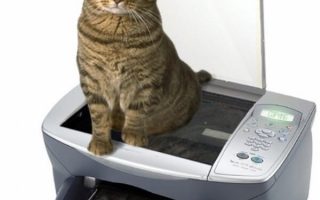Autism in females is oftentimes misdiagnosed socially and medically as some form of a tendency to be overly emotional.
You asked for a sign about what’s wrong with you and causing all the discontented emotions? Here’s your list, ladies.
Have no fears. There’s lots of insightful material presented in this article to make it worth the time for men of all ages to read to while thinking about the women in their lives, about their own social impression of gals, and about what being a woman or a girl socially, intellectually, and emotionally are likely to mean to you to… coupled with insights about the life led by people on the Autism Spectrum.
The following list shares information about red flags and poker tells that someone you know — quite possibly yourself if you are reading here and a female — is likely to be on the Autism Spectrum.
When reading any list of signs and symptoms of High Functioning Autism in females, think things through.
What were you told as a child about how little girls and little boys are expected to act based on their biology?
Take that into account whenever looking around someplace like a classroom or into a mirror.
Have you misdiagnosed someone with Autism Socially as being odd, snooty, or somehow aloof or standoffish? Have you accused them in person or in your own mind of being something like too involved in their passion related to a home or work project?
Did you personalize when the little girl was staring out the window thinking about what you were saying while you were lecturing as a teacher — projecting she was not paying attention and therefore insulting you by acting in a perfectly normal and socially appropriate way for a high intellect child who is eye-avoidant, not due to moral failure or because they are trying to be defiant, but because RBF and eye-avoidant behavior are neurological affectations of individuals who have high functioning Autism?
Did you think of yourself as an outsider, a loner, a wallflower, or someone who never seems to fit in well with your peers (even if you were well-liked in general among them?
Were you bullied as a child for being smarter than others? Or picked on and or excluded socially as a child, teen, young adult, or career professional from the “in crowd” because you were actually more talented or in some way more socially attractive than them? Shunned for being too good at something in life rather than for not being good enough?
Have you ever been accused of overthinking or of thinking too much about divergent topics while struggling to make sense of and to illuminate complex social, emotional, or physics patterns?
Did you ever escape into a fantasy land as a young girl that had nothing whatsoever to do with playing with dolls? Did the idea of becoming a homemaker who stays home barefoot and pregnant with nothing more psychologically or emotionally stimulating than “what’s for dinner” on your intellectual as well as social and emotional dance card leave you feeling unfulfilled?
If you have ever been “accused” of being smart and a perfectionist as though it is something terrible…
Or of being a People-Pleaser with seemingly unlimited or boundless energy to assist others but when it comes time to take care of yourself using self-care methods you seem to forget humans need routine health care and maintenance…
AspienGirl.com shares the following list of 40 signs and symptoms a female child or adult is on the Autism Spectrum. The list focuses on signs of Aspergers Syndrome, a form of Autism that is being challenged in name in the current age — noting that Dr. Asperger (who the condition was named after) worked for the Nazi regime testing Autistic individuals… having us exterminated if we could not be taught things like how to blend into society.
Those who lived through Asperger’s tests are some of the bravest and most highly skilled genetic examples of forms with High Functioning Autism and incredible masking talent.
If you resemble the type of person this list discusses and you cannot figure out why you feel socially and neurologically or spiritually out of step with the world at large, this might be why.
But don’t take our word for it. Do your own research and medical self-examination of your own forensic psychology and figure it out for yourself…
If you are a female — have you been accused of having the following social and sensory processing issues as if they were something to mask or in your moral and intellectual ability to control?
Have you been shamed for acting like or doing any of the following things — or have you been self-critical presuming that because you cannot shake feelings of profound social dread, massive existential boredom, and feelings of hopelessness that something is wrong with you as a person rather than with the way you mindfully created your lifestyle?
Because Autistic females who are incredibly normal and in a category of super cool genetic human all of their own tend to share the following traits even if their social and cultural experiences and tastes differ from other people’s with the same neurotypical super skill set.
1. Intense emotions: In particular, separation anxiety, stress, anxiety, or distress. This is coupled with an inability to be comforted by affection, distracted by a toy or change in situation, or by discussion or conversation with an adult. Anxiety and “shyness” is very common.
2. Sensory sensitivities: There are most often sensory sensitivities involving vision, hearing, taste, smell, touch, balance, and/or movement and intuition or a 6th sense. This is known as sensory processing disorder (SPD). First signs may include a sensitive head, not liking to have their hair brushed or washed, clothing sensitivities, and/or food sensitivities.
3. Coping with transitions and/or change: An inability or difficulty coping with change or a resistance to change.
4. Language skills: Atypical or unusual traits in terms of the development of language skills. May have more formal or pedantic use of language. May not be able to express in words what she wants to say. Articulate.
5. Speech: May not typically be delayed; however, there may be a loudness or softness in the voice. May regress to babyish talk when stressed, anxious, or avoiding something. She may have begun talking very early.
6. The social use of language: May be apparent in that the linguistic profile can often include semantic-pragmatic difficulties so that the pedantic speech may be apparent and there are noticeable eccentricities with the “art of conversation”. May use bigger words than her peers. She may also be socially immature, in comparison to her peers.
7. Hyperlexia: May have taught herself to read before formal education. AspienGirls often have an intense interest in reading and develop an advanced vocabulary.
8. Play: Adults may notice the AspienGirl may not want to play with others or she may direct others’ play, rather than play in a reciprocal and co-operative manner. There is an element of her being “controlling” or “bossy”. She may tell adults that she finds her peers play confusing, boring, or stupid. She may prefer to play on her own, with her animals/toys or with boys. If she is extroverted, she may have difficulty with personal space (hugging and/or touching too much, poking or prodding, bumping or touching them, continually calling her peers names, not understanding that a best friend can play with others). Often may need more solitude than their peers or may not be able to socialize for as long as their peers are able to. Engages mainly in parallel play and seeks the company of adults/educators throughout the day.
9. Interests: An AspienGirl’s interests are usually different from other typical girls in its intensity and quality, rather than the actual interest itself. Often, play can be observed as more of complex set-ups, organizing, sorting, collecting, or grouping items rather than actually playing with them. She may be observed re-enacting a social scene from her own experiences at daycare. A commonly observed interest is collecting stationary/art items, teddy bears, and the like. They may line up coloring pencils in a particular order of colors and have collections of erasers and/or journals.
10. Conventionality: AspienGirls are born “out of the box” and may be observed playing unconventionally. Some prefer Lego, the sandpit, trucks, cars, or dinosaurs. Many think in different or unconventional ways, asking continual and exhausting amounts of questions pertaining to how things work, why things are the way they are, or why people do or say certain things. Many are quite highly sensitive and will ask about death and/or what happens after death.
11. Appearance and clothing: Young Aspiens may look more tomboyish in appearance or ultra princess-like, usually preferring clothing that is comfortable. She may want the tags cut out of her clothes and complain about the seams in her socks. She may prefer to wear the same outfit day in and day out.
12. Imagination: AspienGirls often have advanced imaginations preferring to spend time involved in; fiction, books, fantasy worlds, fairies, unicorns, ponies, Pegasus, talking to and/or having imaginary friends, or imaginary animals. This may be observed at times to the extent that the child may believe they are an animal, a fairy, and so on. There may be some difficulty distinguishing between fantasy and reality.
13. Writing: AspienGirls are often interested in writing and write their own stories on sticky notes, journals, and have an interest in fiction at an early age.
14. Nature and animals: AspienGirls have an intense love for nature and animals, often preferring them over people. They have an empathic and intuitive relationship and an understanding of animals rather than people.
15. Gifts and talents: Most, if not all, AspienGirls have gifts and talents including, but not limited to; singing (perfect pitch or perfect relative pitch), music, art (drawing, painting and other mediums), languages, acting and performing, dancing, writing, superior memory and intelligence.
16. Determination: A strong will, determination, stubbornness and/or competitiveness, argumentative (with teachers, parents, or other adults), or a need to be right (even when she’s is clearly wrong). This may be labeled as Oppositional Defiant Disorder.
17. Facial expressions and emotions: A discrepancy between facial expression and feelings. For example, a “fake” smile, intense facial expressions or lack of, or inappropriate facial expression to the situation. May not understand or be confused by facial expressions. May laugh when she is in trouble.
18. Attention issues: Parents may have taken her to a hearing specialist due to not responding to her name, being “in her own world”, and/or thinking she may be deaf.
19. Hyper-empathy: May be very sensitive to social justice issues, abuse towards animals, nature, or the elderly. May experience the emotions of others. May wonder why they feel different from others.
20. Intuitive: May tell you or know about events and people that they cannot possibly know about. She “knows” certain things without knowing how she knows these things.
21. Curiosity and questions: May ask an endless array of questions that at times, cannot be easily answered. May ask why they feel different from their peers or why their peers are not like them or have the same interests.
20. Interests: Interests are usually similar to neurotypical girls, but the intensity is unique or unusual. An obsession with knowledge on a topic of interest is common.
21. Nausea: May have vertigo or motion sickness (e.g. on a car trip)
22. Habits: Thumb-sucking can last until age 9 or older, biting of nails, and/or grinding of teeth.
23. Co-ordination: May have Developmental Co-ordination Disorder (DCD), hypermobility, clumsiness, or poor muscle tone. May not be able to catch a ball, ride a bike, or may have poor handwriting.
24. Anxiety: May have social anxiety, muteness, or separation anxiety. She may grind her teeth or be excessively clingy.
25. Fear: May have fear and/or phobias (insects and butterflies, dark, separation from mother).
26. Sleep: May have sleep issues.
27. Personality: May be intensely shy and introverted or very extroverted to the point of annoying her peers or family members.
28. The Social Hierarchy: Misunderstands and is unaware of the social hierarchy. May behave as if she is the parent, parenting their parents, their siblings, peers, or teachers. May not understand that she is a “child” or how to “be” a child. May be isolated, alone, or teased by her peers. May have a boy for a friend rather than girls. May not understand that she is a child (e.g. believing they are an animal or an adult).
29. Avoiding demands: May avoid demands due to anxiety (also known as demand avoidance or Pathological Demand Avoidance).
30. Epigenetics: There is a family history of Asperger Syndrome, Autism, Schizophrenia, Bi-Polar Disorder, Depression, Anxiety, or Broader Autism Phenotype (BAP)
31. Maturity: May display interests that are more mature or less mature than her age group. May act at times more mature or less mature than her age.
32. Moral compass: A concern for the rules and a strong sense of justice. May have difficulty with perspective taking, theory of mind, social thinking, and context blindness.
33. Uneven Socialization: Social and emotional delay for her age, yet seen beyond her years.
34. Self-taught: Parents may observe some “self-taught” abilities and/or the child may resist being taught by others.
35. Safety: May lack a sense of “stranger danger” or safety. May wander, have social naivety, be too trusting, take others literally, and have a lack of boundaries
36. Gender: Some AspienGirls experience gender confusion very early, expressing a desire to be the opposite gender. They may not feel strongly either male or female.
37. Kantian Caregiver Nature: A tendency to have intense social justice issues and to “police” others, which are often not appreciated by their peers. At times, she may have a misguided sense of justice and an inability to “let things go” or may not understand the issue is not her business
38. Affinity for Authority Figures: May be the “teacher’s pet”, may interact with their peers not as a “peer” but in more of an adult manner
39. Can’t Tell A Lie: A tendency to be too emotionally honest and unable to hide their true feelings
40. Atypical Allergy Issues, Sensitivity to Chemicals, and Digestion Challenges: May have gastrointestinal issues, gluten, wheat, casein sensitivities to intolerances/allergies
If you meet one or all the diagnostic criteria on this list, understand the world is not going to stop spinning. It’s all going to work out one way or another — you can handle knowing this information.
Life as you know it is not going to end because you have an ah-ha moment or revelation that when you were little… and a female… that adults who likely had all the best intentions but who were profoundly undereducated about what Autism is… groomed you to mask symptoms of being gifted and talented in favor of playing the part of whatever they told you a good little girl was supposed to act, look, or be like.
If you are an adult figuring out that you may have been misdiagnosed with anxiety and depression when what you really had was C-PTSD and a profound case of hopelessness brewing inside of your chest… welcome to Narcissistic Abuse recovery.
Mothers and teachers and doctors who present themselves like authority sources over other people’s biopsychology don’t always know best. In fact, they tend to make massive social and emotional mistakes in judgment about others when and if they are tunnel-visioned and prone to projection.
If you don’t see yourself here, who do you know in your current life who could benefit from reading this article? Who do you remember from your earliest years of childhood, from that last bake sale for the Girl Scout Troop, who you met at that last horse show, or who you remember from work who meets any of the same signs and diagnostic criteria?
Were they gaslit and intentionally misled to believe that only boys are on the Autism Spectrum — or worse told C-PTSD being caused by how we treat ourselves as females and how we allow our family and love interests to treat us while we are trying to please them is actually simply anxiety and depression? Caused by something medically or genetically wrong with us without letting us know that the actual problem is with education in the general public about our condition?
SOURCE: Aspiengirl,com
If you are seeking more information about Autism, HSP (Highly Sensitive Personality Types), Empath Autistics, or people on the Autism Spectrum who are HFA and profoundly, twice gifted, or extremely gifted and talented, follow facebook.com/empathhsp on social media for articles of interest to high EQ and emotionally sensitive people as well as to use the “post search” feature to find articles shared lovingly on the site that are chock-full of interesting academic, medical, and Autie information about life on the Spectrum.





